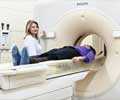A new study by Australian researchers has shown that postures adopted by young babies born prematurely are a powerful indicator of their intelligence later in life.
A new study by Australian researchers has shown that postures adopted by young babies born prematurely are a powerful indicator of their intelligence later in life.
According to researchers, observing these postures could identify individuals who should be monitored for signs of learning difficulties."If you can identify those at risk of a lower intelligence you can intervene earlier by providing a richer learning environment," New Scientist quoted Phillipa Butcher of the Australian National University in Canberra as saying.
For the study, Butcher and colleagues turned to babies born very preterm - at less than 33 weeks - as these children are more likely to have low IQs than typically developing children.
The team filmed 65 such babies 11 to 16 weeks after they were expected to be born, and counted how many normal postures they held in the space of 5 minutes.
Such postures included the fingers of one hand being made to point in different directions at once, a sign that they can move their fingers independently, or lying on their back with their head held straight rather than lolling to one side, which is difficult for babies due to their relatively heavy heads.
Years later, they tested the intelligence of the children, at ages 7 to 11, and found that all 16 of those babies who adopted just one or zero normal postures had IQs below the average of 100, while 60 per cent of those who held two or more normal postures had IQs above 100.
Advertisement
Peter Anderson of the Victorian Infant Brain Studies team at Murdoch Children's Research Institute in Melbourne, Australia, said: "It raises the possibility of being better able to identify children that are at high risk of later learning problems and in need of intervention."
Advertisement
Source-ANI
SRM












